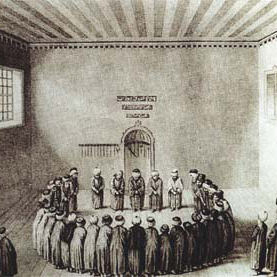Sufis don’t have a single set of practices that apply to all disciples, thus the absolute need of the teacher. The Sufi master is the only one in their view who has the insight to help a disciple pursue the practices in a way that would have any merit. Otherwise, it’s believed that rather than bringing one closer to God, they could hurt your connection.
Even a layperson can have a master, or they must be a monk? Ah, any Muslim can seek a Sufi master, but in doing so you commit to pretty much spending your lifetime serving that master though without the cloistered status. Sufis do not practice actual hermitage, so basically to seek the Sufi way is like picking a spiritual career. It’s often believed that Islam teaches a categorical condemnation of any non Muslim. In Sufi schools. this is not actually embraced, and their teachings do not directly contradict the Koran.
But I have to be a Muslim first to practice with a Sufi master? That’s a controversy, currently. Though traditional Sufi schools do not recognize non Muslim Sufis, even the Muslim Sufi masters are recognizing a call in other people to the Sufi way and have accepted them. A current clinical psychologist is noted as converting to Islam after beginning a practice of Sufism.
To focus more on the strategy of Sufism, all schools of Sufism are heavily experiential. Therefore, by channelling the way of the physical self or naf, one can condition themselves into a higher temperament, and by continuing achieve that unity with God. So they believe by challenging the ways of the physical person one can come to relinquish them, and thus be in more harmonious or “loving” relationship with God. They don’t preach that you can earn Gods love more than another person, but that rather you can understand Gods love better. Thus in a sense receive it more, because you are aware of it.
One lifetime or many? That gets very fuzzy, and you get into culture clash there. There is accusation in orthodox Islam of them being more Jewish than Islamic in their beliefs and practices.
To both schools of Sufism, God can not be limited, and presents this unlimited nature by having all limitations in its power, and also transcending them all. Therefore, God as male, or God as female, is absolutely wrong in the Sufi view, but God is available to the male and the female experience. So Sufism is not focused on any gender prejudice. In fact, non-Sufi agencies see Sufism as the most likely bridge to peace and understanding with the non Muslim world, because of their focus on pursuit of their own understanding of their faith and sharing it, and their practice of the doctrine of tolerance that is found in the Koran. A Sufi will not lambast a Christian for being Christian, but if he puts forth the doctrines of Christianity as the explanation for acts a Sufi views as immoral, then the Sufi will indeed question/criticise that doctrine, but without deprecating the person who practiced it. If the Sufi agrees with a doctrine, they will remain silent or offer what they feel is enriching insight from their own practices.
What are some other practices that they do day to day? Prayer, wearing ritual costume, incense, pilgrimages, and they are huge on service. Outside of their personal religious rights, they offer service to humanity, and actually to all life. They are known for running public kitchens that are not restricted to Muslims, and preserving libraries and what they believe to be educational centers.
In Sufism, simple acceptance of doctrine is not seen as adequate. They believe that doctrine must be put into practice, and being able to recite prayers is not enough. You must understand the prayers. So Sufism historically, and even cross culturally, has had a big hand in preserving knowledge and science, and is why it has its complications in doctrine now. When confronted with the Indian Vedas, rather than see them as “the devils books”, they read them and considered those teachings.
They must change a lot over the years? Yes and no. They believe their practices have the transformative power because of the truth of Islam, but they aren’t obligated to adopt an adversarial stance to other faiths. If anything the opposite. Though a faith other than Islam is incorrect, it isn’t automatically “evil”.
So yes, there was some splintering, and there is an effort for non Islamic Sufi seekers to be acknowledged by Sufi seekers. There is not seen to be an actual unity yet, but Sufis have a state they believe in similar to a Buddha state. Where though you aren’t literally identical with God, you are a living agent of God, and therefore can fully live Gods way.
I’m noticing how all beliefs have elements of truth, perhaps core truth. In my own studies and seeking, I noticed it also. I felt no attraction to any one way that would set me on that specific path, but I did feel the “attraction to God”.
If it’s not true then a lot of delusion is going on. Yes, and the cause of that would be a really strange thing to learn.
Your thoughts are welcome. Be well friends.
Travis Saunders
Dragon Intuitive
~science,mysticism,spirituality~

